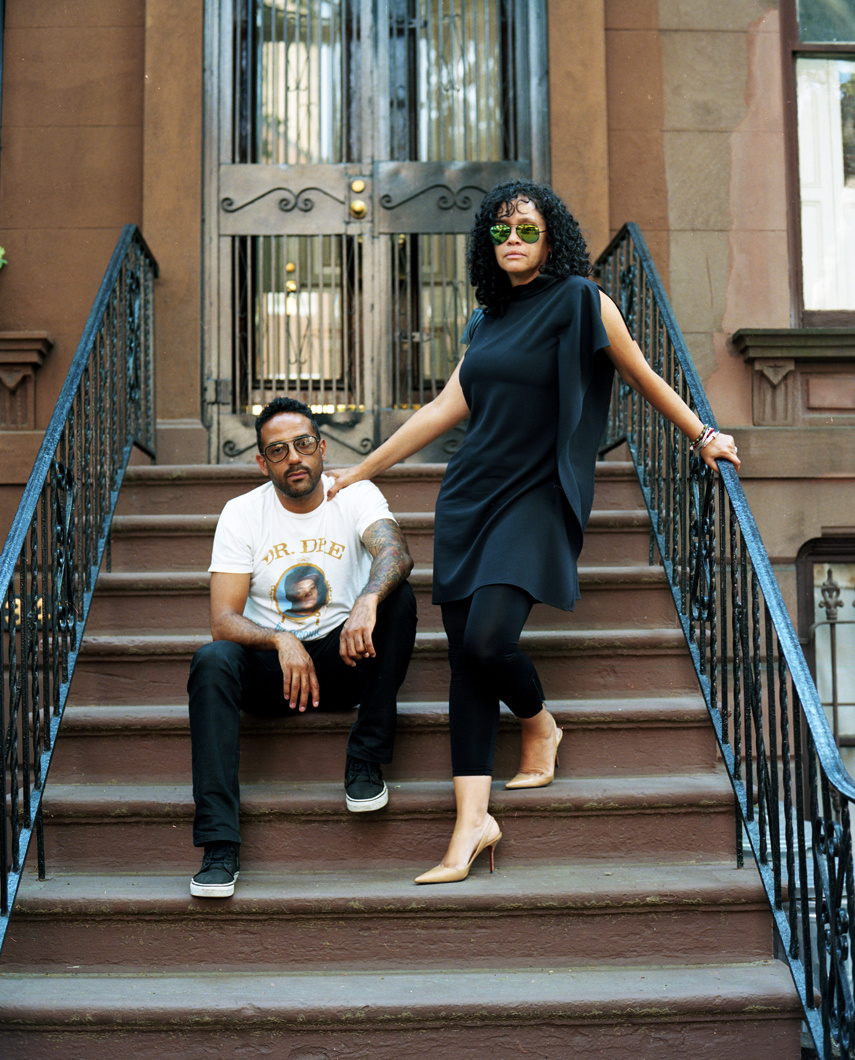How did Afropunk kick off?
Matthew: We took the Afropunk documentary to the Toronto Film Festival in 2001 and the interest started there. We started connecting all these kids. If they were a black kid in Ohio who loved Minor Threat or Fugazi or whichever punk band, they suddenly knew that other kids existed around the country like them.
Jocelyn: Now the site has grown to three million users in a month. The kids who are on the site are hyper-focused on it and live it.
Who are the Afropunk followers?
M: When we first started, it was still a time where black and Latino kids that you see in New York that skateboard, BMX, are into dance music and hardcore, wasn’t the norm. We’re still outsiders, but now there are more kids who are willing to come along. If you rode a skateboard round here [Bed Stuy, NYC] as a black kid 10 years ago, someone would have thrown a bottle at you. That was considered a white thing to do. Very odd, and coming from the UK, it took some getting used to that.
What does Afropunk stand for these days?
M: Freedom. It’s something that I felt when I came to New York and put on our first show and was so excited. When I got into the punk scene here, the emotion that I felt was incredible. Being in a room with a bunch of like-minded people and having no inhibitions about getting in and moshing. It wasn’t violent or aggressive. It was fun. A lot of people are restricted by how clean their jeans are, or they don’t want you to step on your sneakers. Not so much now, but that was a big thing, particularly with a lot of people of colour.
J: Your personal space is very different as a person of colour.
M: There’s nothing freeing about that, so being able to stretch out and touch people was just incredible.
The name Afropunk could be a bit misleading for someone who’s never been to the festival, because it’s very inclusive and there’s all kinds of music, including hip hop and soul.
M: The definition in the film was black punks, but if you really look at it, it’s about identity. You can be a Latin kid in an Irish neighbourhood and struggle with identity issues and be the only kid. You can be a not-straight kid in an all-straight environment and be the only kid.
J: Young people who come to the festival get that.
M: We don’t want people to grab on to certain elements and come along with certain other views. If you’re there and you really don’t get it, then there’s no point in you being there.
What acts are you excited about?
J: Cakes Da Killa! He’s free and wonderful. You just want to jump on stage and have a good time with him.
And D’Angelo is playing.
M: Jocelyn signed him when he was 17, so over the years of talking to him, we know where he wants to go.
J: He never liked that Neo-Soul label!
M: So we’re doing our version of a super jam with him and Living Colour and Fishbone – cornerstones of alternative black music from the last two decades. These are the people he loves and admires and wants to play with.
J: D’Angelo can play anything. Give him a rubber band and two toothpicks and he can figure out how to make something really amazing.
M: We’re really excited about Lianne La Havas too.
J: Her record is so mellow, then you see her live and it’s extraordinary. This statuesque woman in high heels and an evening dress playing guitar. And what comes out of her mouth is phenomenal.
It’s an incredibly stylish festival. I’ve never seen so many cool looking kids in one spot.
M: Yeah, they’re so stylish. It’s become such a part of the festival, which I was a little scared of. I didn’t want it to become a fashion show. It could have been kind of corny, but we haven’t initiated it – they’re bringing who they are.
J: There was a girl last year wearing a black veil. Someone interviewed her and said, “What’s up with the veil?” and she was like, “I’m wearing the veil because I’ve come to everybody’s funeral…because I’m killing it.”
Credits
Text Stuart Brumfitt
Photography Barbara Anastacio
